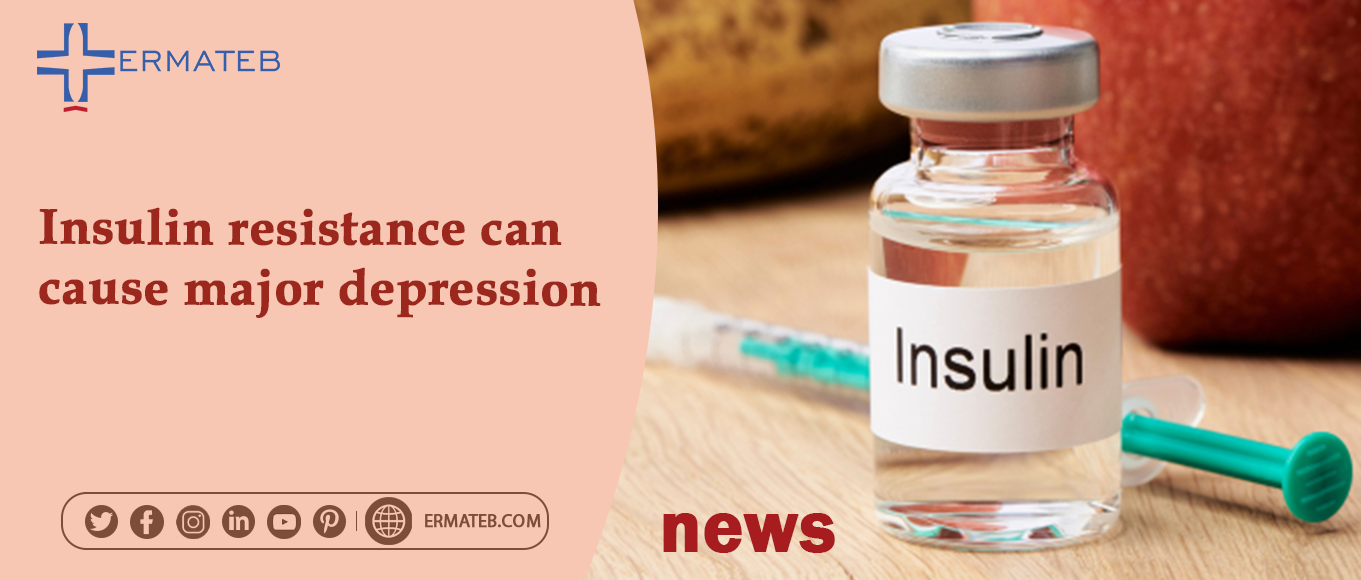
Insulin resistance is a condition in which the body's cells do not respond properly to insulin, which impairs glucose uptake and, in turn, raises blood sugar. In the case of insulin resistance, the amount of insulin produced by the pancreas in the body is normal and even higher than normal, but it is difficult for cells to respond to insulin. Insulin resistance usually leads to undiagnosed type 2 diabetes. This dysfunction causes the pancreas to make more insulin to balance.
A new study by researchers at Stanford University School of Medicine, CA, found that participants with insulin resistance were at higher risk for depression. One in five Americans suffers from major depressive disorder during their lifetime. Symptoms include persistent discomfort, hopelessness, laziness, sleep disturbances, and loss of appetite. Some of the most debilitating factors in this disease are childhood injuries, the loss of a loved one, or the stress of coronary heart disease, for example, cases that we cannot prevent, but insulin resistance is preventable. It can be reduced or eliminated by diet, exercise, and medication if needed.
They found that those who developed prediabetes during the first 2 years of the study were more than two times more likely to be experiencing major depression at the 9-year follow-up than those who had normal plasma glucose levels at the 2-year point. “We look forward to larger studies that help further pinpoint the biological links between diabetes and depression, helping uncover the most effective ways to reduce the risk of depression for those with or at risk of type 2 diabetes, and vice versa. We also hope this will lead to better ways for healthcare professionals to identify people who are at risk of developing depression, ensuring they get the treatment and care they need early on,” Dr. Riley added.

